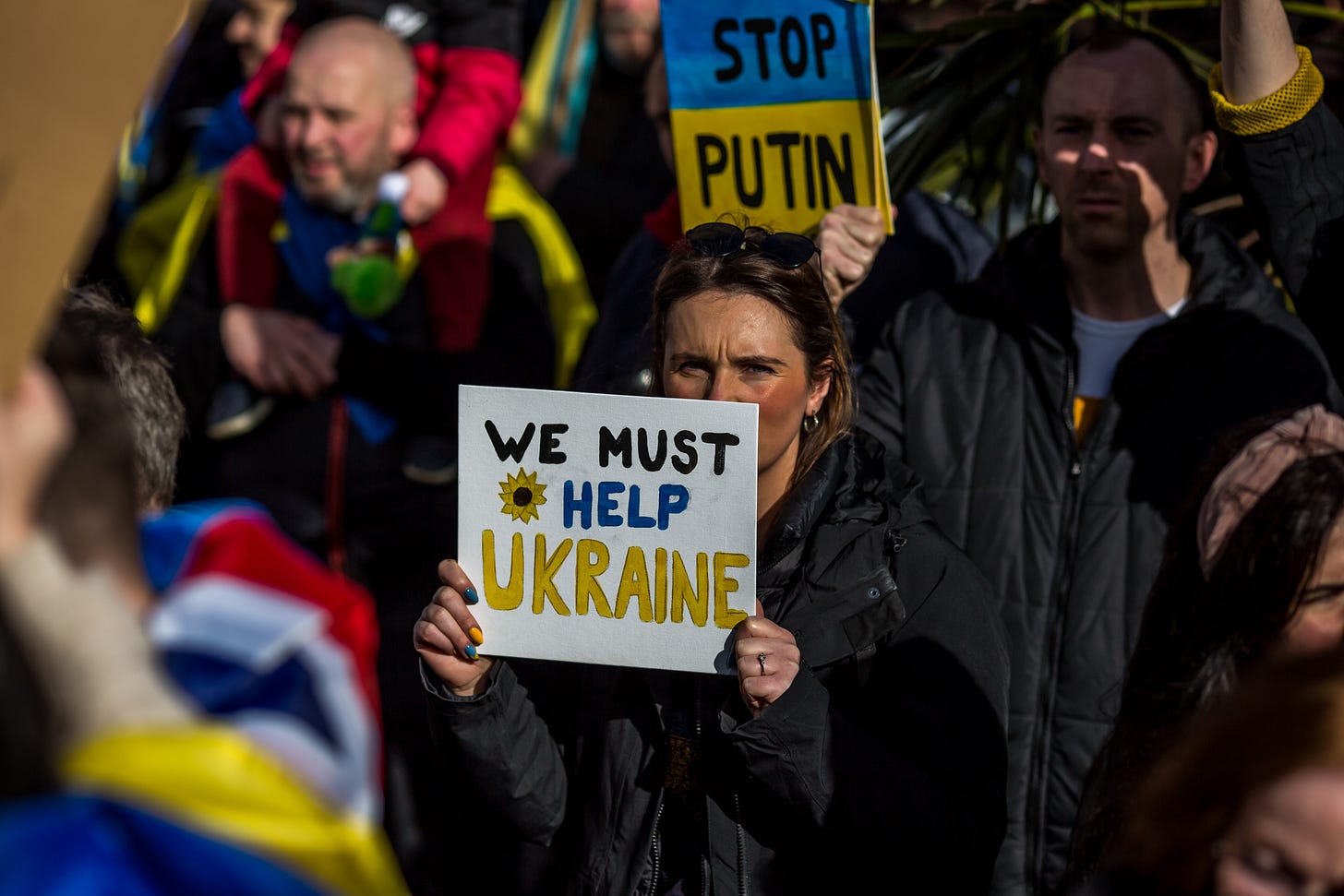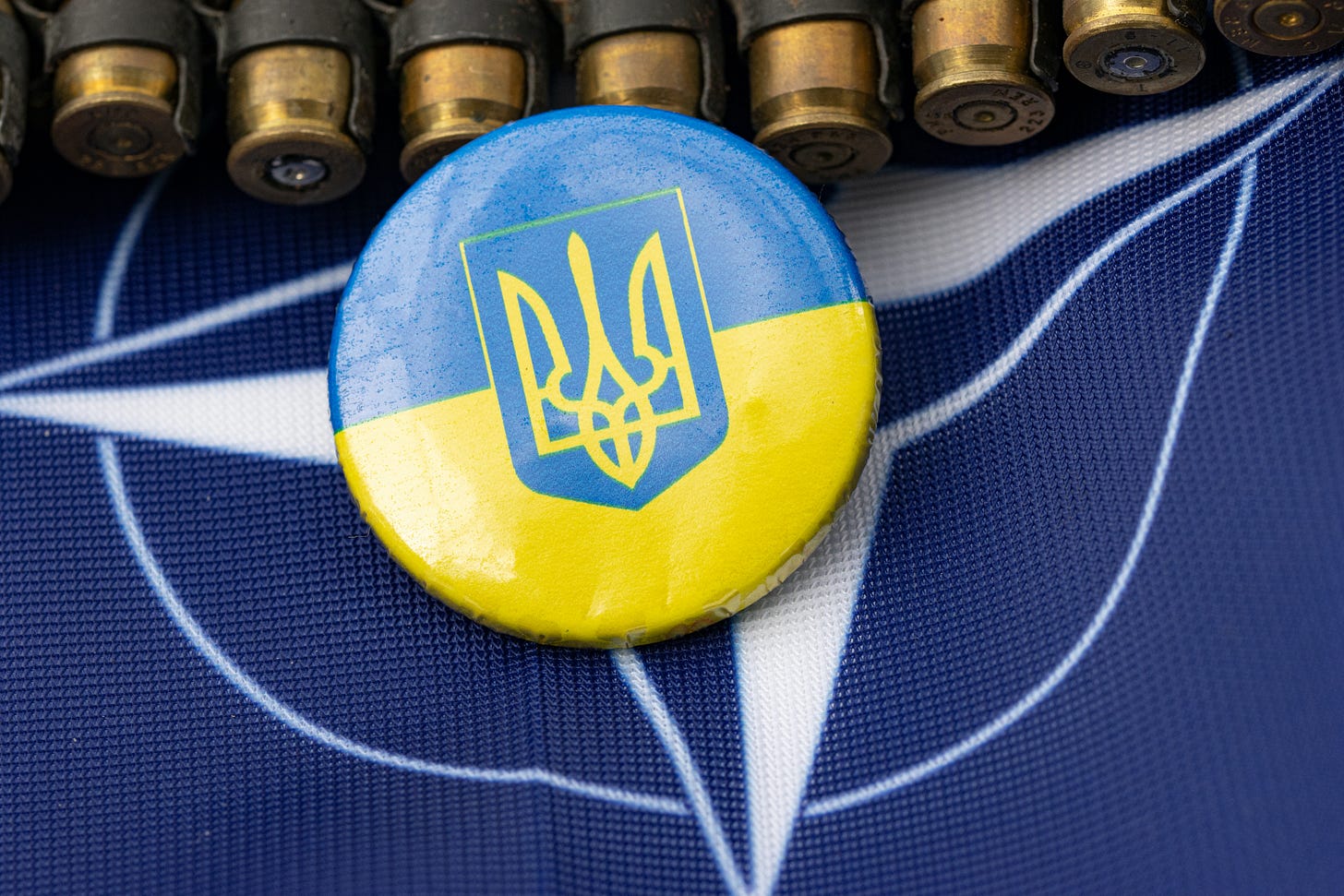
Much has been written about the NATO summit in Vilnius, Lithuania, in recent days, and the Internet was rife with speculation about whether Ukraine—in a middle of a hot war with Russian invaders for more than 500 days now—would get a membership invite to join the alliance.
First, let me unequivocally state that what I’m about to write are my personal opinions only. I’m not speaking as a government official—present or past. I’m speaking as someone who has watched the issues connected to NATO, Russia, and Ukraine for more than a decade, and is basing said opinions on those experiences.
Second, I’m not sure why anyone thought that an invitation for membership would be extended this week. NATO has outright said that although Ukraine will join the alliance eventually, an invite was not going to happen this week. For Ukraine, it appears the issue of membership is not a matter of “if,” but a matter of “when.”
Ukrainian president Zelensky was not happy with the decision, which is understandable. Ukraine has been fighting the Russian onslaught for more than 500 days. It has lost innocent victims, Ukrainian children have been kidnapped by the Russians, Ukrainian civilians have been slaughtered and tossed into mass graves, toddlers have been raped, the country has been looted, innocent people have been tortured and enslaved. Ukraine needs help fighting off the Russian attacks, and it is getting intelligence support and equipment, albeit sometimes at a glacial pace.
Throughout this war, Ukrainian armed forces have learned how to fight, how to operate western equipment, how to use intelligence effectively. They have become the bulwark against Russian aggression, protecting the West against what would almost certainly be another Russian advance, if Moscow succeeds in destroying Ukraine. This is not the Ukrainian military from 2014, which basically just threw down its weapons, took off their uniforms, and invited the Russian “little green men” to come on in and illegally occupy Crimea for promises of a Russian salary. This is not the same Ukraine whose military officers stole equipment and land and auctioned it off to the highest bidder.
Ukraine is a very different country now. It’s fighting for its very survival—the survival of its people and its culture—against a much bigger aggressor. And with the help of the West, the Russian “three-day special military operation” has turned into a lengthy boondoggle with more than 236,000 estimated troop casualties, thousands in lost equipment, and sanctions that continue to hammer the Russian economy, hindering its ability to wage war.
So yes, I think Ukraine has changed a lot. It fights corruption even when in the midst of a conflict that is destroying its ecosystem, homes, hospitals, and other critical infrastructure. Senior Defense Ministry personnel have been fired and replaced. A Supreme Court judge has been arrested for taking millions in bribes.
But corruption is only one issue that was keeping Ukraine out of NATO. Ultimately, it’s not about Ukraine itself, but what is right for the alliance as a whole. It’s a hateful thought, I know. But an immediate membership does carry a very real risk that NATO will wind up in a war with Russia—something that the alliance has sought to avoid.
My thought was always that by supporting Ukraine with intelligence and weapons systems, we actually avoid sending US troops to fight the Russians. This is a good thing, and ultimately lighter on the budget. If that sounds callous, I understand. But ultimately, nations put rational self-interest first. If NATO Article 5 collective security guarantee is invoked with Ukraine as a member, the allies have an obligation to treat it as an attack on the alliance as a whole and enter war with Russia. A country needs to be stable and its borders secure before joining the alliance, lest the entire alliance immediately be drawn into a hot war.

The checklist includes requirements that must be met, which Ukraine cannot do while it is actively fighting off the Russian aggressors. As I told Pete Turner in a recent webcast, as much as I am a free marketeer, I also understand that right now—in the middle of a war—the Ukrainian government must have firm control of the strategic sectors of its economy, which the government did last year by seizing stakes in several companies.
The companies included engine maker Motor Sich, energy companies Ukrnafta and Ukrtatnafta, vehicle maker AvtoKrAZ and transformer maker Zaporizhtransformator.
"Such steps, which are necessary for our country in conditions of war, are carried out in accordance with current laws and will help meet the urgent needs of our defence sector," Zelenskiy wrote on the Telegram messaging app.
"In these difficult times, we must direct all our forces to liberate our land and people, support the Ukrainian army."
One of the minimum requirements for NATO membership is progress toward a market economy, which cannot happen while Ukrainians are actively battling the invader and seizing control of critical economic sectors. Yes, I understand the need to do so, but at the same time, that minimum requirement is certainly far from being met right now.
At the same time, we have territory in Ukraine, that belongs to Ukraine, illegally occupied by the Russians. How can we allow the enemy to occupy parts of a NATO member without taking action?
So I can understand why a number of NATO allies balk at an immediate invitation.
That said, I think the waiver of a Membership Action Plan (MAP) to expedite Ukraine’s entry into the alliance once the war has ended is a good idea.
The MAP process provides a focused and candid feedback mechanism on aspirant countries' progress on their programmes. This includes both political and technical advice, as well as annual meetings between all NATO members and individual aspirants at the level of the North Atlantic Council to assess progress, on the basis of an annual progress report. A key element is the defence planning approach for aspirants, which includes elaboration and review of agreed planning targets.
The MAP process can be a lengthy one. Bosnia and Herzegovina received a MAP 13 years ago, and obviously it’s not been invited to join the alliance.
Ukraine has proven itself a more than capable ally, and I have no doubt that the country will become the next NATO member sooner rather than later. Ukraine has earned it.
Determining whether immediate entrance would end the conflict would be difficult. Putin has proven himself to be unpredictable and ego-driven. So rather than not wanting to engage the alliance as a whole, which would be the smart thing to do for Russia’s survival, he may just do something stupid like lob a nuke to show Russia’s “strength” and willingness to sacrifice against the enemy. He’s already shown his willingness to subject his country to harsh economic measures and face ridicule and condemnation from much of the world. The question of whether he’s willing to go head-to-head with NATO is one that is complex and nuanced, and an immediate admission of Ukraine into the alliance is sure to bring those uncertainties into full view.
Don’t get me wrong. Ten years ago, if someone had asked me whether I supported Ukraine even receiving a MAP to join NATO, I would have balked. I was doubtful about sending weapons to Ukraine after Russia’s invasion of Crimea, knowing they would likely disappear into a black hole of corruption.
Times have changed, though, and I am hoping for an immediate end to this war, so Ukraine can joing the alliance as soon as possible. Help Kyiv win. Help them kick the enemy out of their country, stop the torture and murder of Ukrainian civilians. Help restore the stability, strength, and capability in Ukraine, so that the alliance will be stronger with a stable, capable Ukraine as a member.
The time now is to help Ukraine win this war, so it can become a strong and reliable partner in the future.




No! There is a reason (the ongoing war) per the charter. This is a bridge too far right now!
Old, grumpy, and have a headache... sorry... ;-)